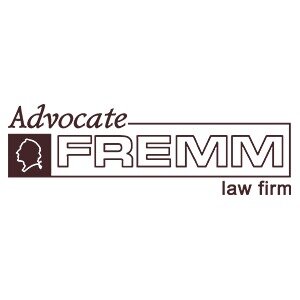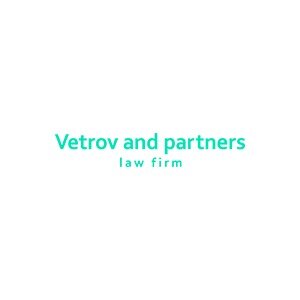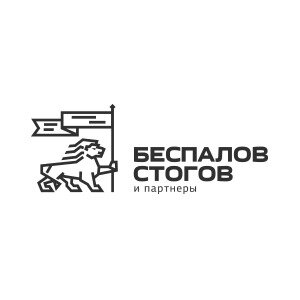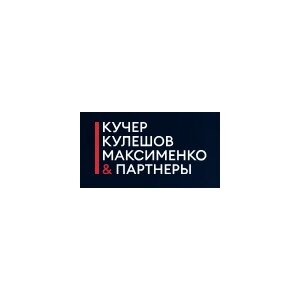Best Mining Law Lawyers in Russia
Share your needs with us, get contacted by law firms.
Free. Takes 2 min.
Or refine your search by selecting a city:
List of the best lawyers in Russia
About Mining Law in Russia
Mining Law in Russia governs the exploration, extraction, processing, and sale of mineral resources found within the territory of the Russian Federation. This legal sector is regulated primarily by the Subsoil Law (Federal Law No. 2395-1 "On Subsoil" of 1992) along with related legislation concerning environmental protection, licensing, royalties, and land use. Russia owns one of the world's largest reserves of minerals, making mining a critical part of its economy. The legal framework aims to balance effective extraction with environmental protection, economic efficiency, and the interests of both state and investors.
Why You May Need a Lawyer
Engaging in mining operations in Russia can involve complex and often evolving legislation. People and companies may require legal help in scenarios such as:
- Obtaining proper licenses and permits for exploration or mining
- Understanding property and subsoil use rights
- Complying with local, regional, and federal environmental rules
- Drafting or reviewing mining contracts and joint ventures
- Participating in tenders or auctions for subsoil plots
- Navigating disputes over land, mineral rights, or royalties
- Handling regulatory inspections and compliance checks
- Structuring mergers, acquisitions, or transfers of mining interests
- Mitigating risks associated with changing legislation
- Ensuring proper closure, reclamation, and environmental obligations post-mining
Due to these complexities and the potential financial stakes, consulting a legal professional familiar with Russian Mining Law is highly recommended.
Local Laws Overview
The legal landscape regulating mining in Russia includes several key aspects:
- Licensing: Extraction of mineral resources requires a state-issued license, often granted through a competitive process such as auctions or tenders.
- Subsoil Use Rights: Rights to use subsoil (mineral resources) are separated from land ownership. The state retains ownership of all mineral resources.
- Types of Licenses: Licenses may cover geological exploration, extraction, or combined operations, and each has specific legal requirements.
- Environmental Regulations: Miners must comply with environmental impact assessments, reclamation plans, and other protective measures.
- Payment Obligations: Mining companies must pay mineral extraction taxes and possibly royalties.
- Transfer of Rights: Licenses and subsoil use rights are generally not freely transferable and require state approval.
- Strategic Deposits: Special rules apply to "strategically important" mineral deposits, which may restrict participation by foreign companies.
- State Supervision: Mining activities are subject to inspection and oversight by various state bodies.
Failure to comply with these laws can lead to fines, suspension of activities, or revocation of licenses.
Frequently Asked Questions
What government body regulates mining in Russia?
The Federal Agency for Subsoil Use (Rosnedra) is the primary body regulating subsoil use, including issuing licenses and supervising compliance.
Who owns the mineral resources in Russia?
All mineral resources are owned by the Russian Federation. Private parties can acquire rights to explore and extract minerals under license but do not own the minerals outright.
How do I obtain a mining license?
Licenses are typically obtained through competitive auctions or tenders. Applicants must meet legal, technical, and financial requirements and submit documentation to Rosnedra or local authorities.
Can foreign companies participate in mining activities?
Yes, foreign companies can participate, but restrictions apply, especially for strategic deposits. Acquisitions of certain mining licenses by foreign entities may require additional approvals.
What are the main taxes and royalties for miners?
Mineral extraction tax and royalties are the main financial obligations. Rates depend on the type of mineral and extraction volume, and are governed by the Tax Code.
Are environmental impact assessments required?
Yes, before commencing mining operations, companies must conduct and submit environmental impact assessments, create reclamation plans, and follow other regulatory measures.
Can mining licenses be transferred?
Generally, licenses are not freely transferable. Transfers or changes in ownership often require prior approval from state authorities and may not be permitted in all cases.
What happens if I breach the terms of a mining license?
Breaching license terms can lead to fines, suspension, or even revocation of the license. It is important to comply with all legal and regulatory requirements.
How are disputes over mining rights resolved?
Disputes may be resolved through negotiation, arbitration, or court proceedings. Specialized legal support can help navigate the appropriate forum and procedures.
What are the obligations after ending mining operations?
License holders must ensure safe closure of the site, carry out reclamation, and restore the environment in accordance with the law and license conditions.
Additional Resources
Individuals or companies seeking more information or help with Mining Law in Russia can refer to the following resources:
- Federal Agency for Subsoil Use (Rosnedra)
- Ministry of Natural Resources and Environment of the Russian Federation
- Russian Union of Industrialists and Entrepreneurs - Mining Section
- Chamber of Commerce and Industry of the Russian Federation
- Licensed law firms specializing in energy, natural resources, and mining law
- Official government websites publishing updates on legislation and licensing
These organizations provide guidance, regulatory updates, and sometimes access to document templates or consultations.
Next Steps
If you require legal advice or assistance in Mining Law, consider taking the following steps:
- Gather all relevant documents such as current licenses, permits, and contracts
- Prepare a clear outline of your legal issue or business objectives
- Identify law firms or independent lawyers specializing in Russian Mining Law
- Contact a legal professional for an initial consultation to evaluate your situation
- Stay informed about any regulatory changes that may affect your rights and obligations
- Follow the legal advice and keep records of communications and filings with state authorities
Taking early action and seeking qualified legal advice will help you navigate the complex field of Mining Law in Russia, protect your interests, and ensure compliance with all relevant regulations.
Lawzana helps you find the best lawyers and law firms in Russia through a curated and pre-screened list of qualified legal professionals. Our platform offers rankings and detailed profiles of attorneys and law firms, allowing you to compare based on practice areas, including Mining Law, experience, and client feedback.
Each profile includes a description of the firm's areas of practice, client reviews, team members and partners, year of establishment, spoken languages, office locations, contact information, social media presence, and any published articles or resources. Most firms on our platform speak English and are experienced in both local and international legal matters.
Get a quote from top-rated law firms in Russia — quickly, securely, and without unnecessary hassle.
Disclaimer:
The information provided on this page is for general informational purposes only and does not constitute legal advice. While we strive to ensure the accuracy and relevance of the content, legal information may change over time, and interpretations of the law can vary. You should always consult with a qualified legal professional for advice specific to your situation.
We disclaim all liability for actions taken or not taken based on the content of this page. If you believe any information is incorrect or outdated, please contact us, and we will review and update it where appropriate.
Browse mining law law firms by city in Russia
Refine your search by selecting a city.

















